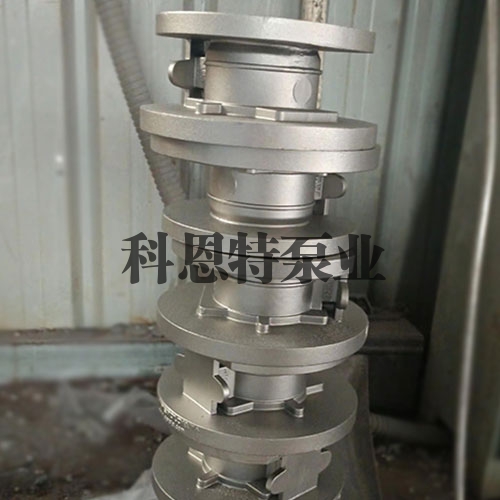

The mechanical properties of stainless steel pump castings are higher than cast iron, but their casting performance is worse than cast iron. Due to the high melting point of stainless steel precision casting, the steel liquid is prone to oxidation, poor fluidity, and large shrinkage. Its body shrinkage rate is 10-14%, and linear shrinkage is 1.8-2.5%. To prevent defects such as insufficient pouring, cold shut, shrinkage and porosity, cracks, and sand sticking in steel castings, more complex process measures than cast iron must be taken:
1. Due to the poor fluidity of molten steel, in order to prevent cold shuts and insufficient pouring in steel castings, the wall thickness of steel castings should not be less than 8mm; The structure of the pouring system aims to be simple and the cross-sectional size is larger than that of cast iron: dry or hot casting is used, and the pouring temperature is appropriately increased, generally between 1520 ° C and 1600%. Because the pouring temperature is high, the superheat of the molten steel is high, the liquid state is maintained for a long time, and the fluidity can be improved. However, if the pouring temperature is too high, it can cause defects such as coarse and warm grains, porosity, and sand sticking. Therefore, for small, thin-walled, and complex shaped castings, the pouring temperature is approximately the melting point temperature of steel+150C, while for large and thick castings, the pouring temperature is about 100 ° C higher than its melting point.
Due to the significant shrinkage of stainless steel precision casting compared to cast iron, in order to prevent shrinkage and porosity defects in castings, measures such as risers, cold iron, and subsidies are mostly used in the casting process to achieve sequential solidification.